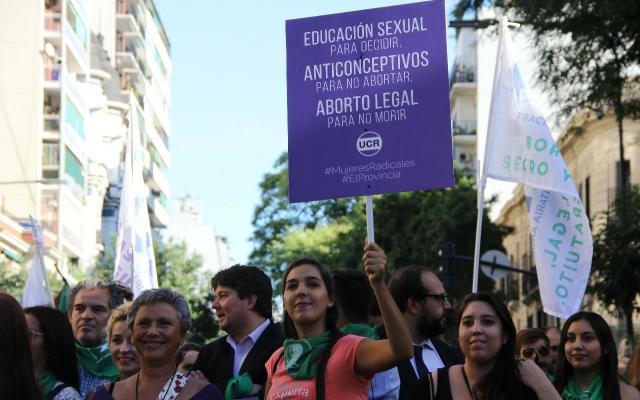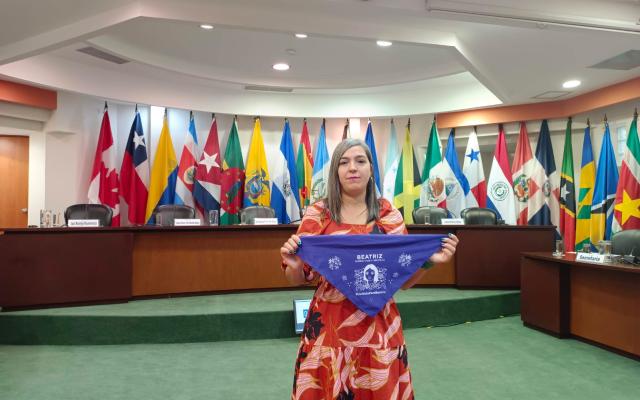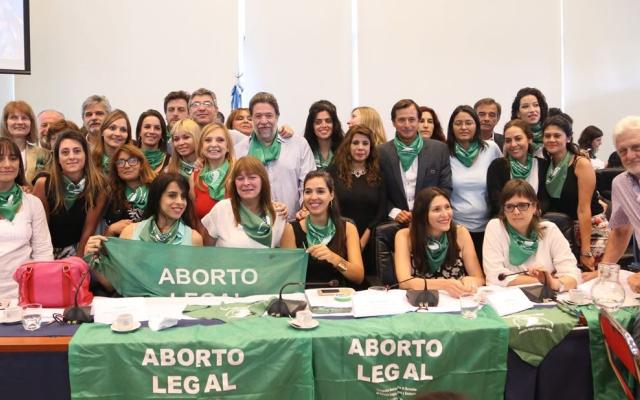
Photo courtesy of Pamela Martín García
In a world consumed by crises - wars, authoritarian regimes, economic injustices, and transnational anti-rights movements, feminists continue to do what we have always done: resist, rebuild, and reimagine. In the words of Pamela Martín García, she takes us through this blog as a call to safeguard hard-won rights, defend care as a political act, and hold democracy together even as it is attacked from every corner. Far from being passive witnesses, feminist movements are proving to be the unstoppable tide - transforming rage into solidarity, weaving networks across borders, and keeping hope alive for generations to come.
We could say that feminists are “saving the furniture.” In the South American continent, this phrase is used when we experience a disaster or a fire, and we must decide which furniture to save. Thus, in these times of multiple crises and with leaders who preach hatred while they burn down our “common home,” feminists save what is essential: we defend care for one another and the rights we have already achieved, nothing less. We resist, but we also seek to move forward.
They want us to isolate ourselves; however, we come together, we reorganize, we continue to weave networks, because we have always done so, and this is not the first crisis we have faced. Although it does have different “nuances”: unprecedented cruelty1 and a genocide of the Palestinian people broadcast live and in person through every possible means, with no reaction other than indifference and complicity.
In the face of violence, we decide to remember and memorialize, to speak out and advocate for our rights and for justice. Violence is being endorsed from the highest echelons of power, in the North and the South. Corrupt, weak, opaque democracies. Authoritarian and dictatorial governments masquerading as freedom.
We must have a historical perspective because, after 30 years of Beijing, we have transformed the world in all areas of life. Who? We, the feminist movements. And we did so by strengthening democracy, the democracy they insist on tarnishing, the democracy that preachers of hate manipulate and abuse.

Photo courtesy of Pamela Martín García
I am more than aware that democracy is not perfect, but I do consider it a way of life. We learned this from the democratic springs of the 1980s, following the end of dictatorships in Latin America, where we could eat, educate ourselves, heal, and preach an ethic of solidarity. Without a doubt, it's urgent to strengthen and update it, but I don't think abandoning or demolishing it is a good plan.
The first time I had a close encounter with the Beijing Declaration and Platform for Action (BDPfA) was at the FEIM offices, under the direction of Mabel Bianco. She asked me to read the entire Bejing Declaration in English. When I finished, she called me into her office, grabbed a printed sheet of paper from her desk, turned it over, and began to draw a rough outline of the United Nations organizational chart. There was no turning back, and along with other activist and militant experiences I was going through at the time, I gained a significant boost in feminist activism by learning from others: building historical memory.
“We must continue building historical memory because it allows us to measure progress, perceive it, and know how far we still need to go to exercise our rights fully; and as Indigenous people, we dream of the elimination of racism in all its dimensions. We see great progress in the recognition of differences and the progressive acceptance of differences, so we must continue building and always look back and not make the same mistakes, but also learn from those lessons and mistakes to achieve recognition and rights in different settings in a shorter timeframe.”

Photo courtesy of Pamela Martín García
Multilateralism is devalued. It needs an injection of innovation, along with real integration and, above all, political will. For some time now, it has failed to fulfill its role as an observer and bastion of the complete fulfillment of human rights, peace, and justice. However, multilateralism was once a significant force and gave us a robust, cutting-edge regulatory framework for human rights, such as the Universal Declaration of Human Rights; the Commission on the Social and Legal Status of Women, which developed the first draft of the Convention on the Elimination of All Forms of Discrimination against Women (CEDAW); the outcome of the Tehran International Conference on Human Rights with that paragraph on family planning; and the Vienna Declaration and Agenda with that superlative paragraph 40. And, of course, the four World Conferences on Women among dozens of bindings and non-binding instruments that impact various spheres of life and the planet.
It was the 1970s, and in Latin America and the Caribbean, that social and political revolutions were taking place, while at the same time, the most tenacious dictatorships were emerging, alongside a world immersed in a Cold War and heat-related repression. In this context, the First World Conference on Women was held in Mexico in 1975, with the participation of representatives from 133 governments and 6,000 representatives of women's and feminist NGOs. For the Fourth World Conference on Women in Beijing, representatives of 133 governments and 6,000 representatives of women's and feminist organizations participated. The number of civil society organizations represented was 30,000.
At that First Conference, a global plan of action was defined to achieve the goals of International Women's Year, which included a broad set of guidelines for advancing women up to 1985. At the Second World Conference on Women, in 1980 in Copenhagen, the objective was to review progress made towards meeting the goals of the First World Conference, particularly those related to employment, health, and education. In 1985, with some democratic springs already flourishing in the region, the Third World Conference on Women was held in Nairobi, Kenya. It was there that governments adopted the Nairobi Forward-Looking Strategy for the advancement of women, which outlined the measures to be taken to achieve gender equality at the national level and promote women's participation in peace and development initiatives.
“I went to Nairobi in 1985 as part of the official delegation, but before that, in 1984, I had the experience of attending the regional preparatory meeting held in Cuba, in which Argentina was to be the rapporteur country. I went as a government representative, accompanied by two officials from the Foreign Ministry, who said we didn't have to accept being the rapporteur country. I opposed it, and thanks to that, I had the honor and privilege of working with Vilma Espin, who was the president of the regional meeting.
We developed a report based on the discussions, which was very good because it truly represented a very democratic representation of what the countries of the region thought. This allowed me to gain an understanding, from that moment on, which I had partly already had through my personal activities, about the weight and importance of multilateralism at the regional and global levels, the basis of which is that all countries have an equal voice.
This means that in the discussions, the weakest countries, from a political and economic standpoint, have the right to have an equal voice, and this is something essential to achieve. A consensual agreement, which is the other principle of multilateralism (...) Of course, the majority positions will have a greater chance of weighing in on the consensus, but the voice of minorities is not lost. It is essential to foster this capacity for discussion, something that has now been lost (...) This is a deterioration of multilateralism that we cannot allow (...) I believe the clearest example of how this multilateralism can be achieved with excellent results was the XVI Regional Conference of Women in Mexico (...) An excellent consensual document was achieved in a region with significant disparities."
Mabel Bianco
Founder and president of the Foundation for the Study and Research of Women
She is an epidemiologist and a prominent feminist in Argentina and around the world
We are facing an international hate movement; anti-rights movements are transnational. They think together, attend the identical summits, and have articulated communication and a vertical organization. They measure every inch of the communication strategy and their hate-filled narratives, not only generating chaos, where "something will remain", but also waging a cultural battle to move the Overton Window2.
They are concerned about "unborn children", but not the children murdered in Gaza. They are concerned about "unborn children", not the children behind the figures of child poverty, forced into marriage, or in the middle of conflict. Before, anti-rights groups and leaders were in the neighborhoods, the churches, and on the outskirts, but now they are at the center of power. And as they say in my country, "if the president says so, so be it." And there goes the servants of the preachers of hate, burning LGBTQIA+ people, repressing pensioners, polluting territories, persecuting and attacking human rights defenders, restricting the actions of civil society organizations, forcing women to give birth, sending women to jail for obstetric emergencies, disguising a state of emergency in security, and violating women in all its forms.

Photo courtesy of Pamela Martín García
Do feminist movements have the same or greater power than anti-rights groups? The difference lies in the fact that we don't use the same tools: they use hatred, cruelty, fear, and violence. We have rules that we don't break, nor will we break; we are not violent. We have rage, yes. How could we not have it in the face of such cruelty? But we transform that rage into organization, cooperation, solidarity, mobilization, and diverse strength. We are light and creativity, we are colors and let us remember that we are an unstoppable tide.
All of that has its costs. At what price do we endure and make so much progress? Caring for our bodies, our mental health, and collective care must also be crucial elements.
Financial sustainability is in the eye of the storm. Multilateralism fell short in the outcomes of the IV Seville Conference on Financing for Development (FfD4). In the words of Latindadd, in its post-Conference report: “Although the financing for the development process to sources of resources to finance the 2030 Agenda it is more than that from its conception: it is the space to decide on a systemic reform of the international financial architecture. In this sense, Seville opened some windows of opportunity toward this objective, but not broad doors toward binding agreements that give the United Nations a greater role under democratic governance.”
The taste of disappointment comes from the impossibility of achieving a Sovereign Debt Framework Convention. What was achieved was a commitment to initiate an intergovernmental process to provide recommendations for debt architecture reform, to be comprised of United Nations Member States, lenders, borrowers, the Paris Club, the IMF, the World Bank, other multilateral development banks, private creditors, and other relevant stakeholders. This could become a preliminary step toward a future binding commitment.
New generations are drawing on the steps already taken, reformulating and redefining them, and challenging us with new risks and opportunities to live dignified lives.
“I've been participating in youth and feminist spaces since I was 17, and I think it's crucial to recognize that multilateral spaces allow us to engage in dialogue in a way that is close to governments, international organizations, and organized civil society, because they are spaces where non-traditional policies are often challenged. For example, in Guatemala, we face many limitations when it comes to challenging narratives and power structures. Still, I believe that in multilateral spaces, we have (…) a window of opportunity to make our countries' historical demands heard (…). These are strategies and opportunities to bring these conversations to the local level. Thirty years after Beijing, we, as young feminists, see a path forward, but at the same time, an urgent call. It's not just about commemorating, but also about questioning ourselves, because after 30 years, many of the commitments remain pending.”
The organizational capacity of feminist movements is indisputable. In the face of such cruelty, we will not remain burdened by this pain; we will strive to achieve the freedoms we lack.

Pamela Martin Garcia is a political scientist from Argentina with a career focused on promoting social and gender justice. A feminist and political activist, she has been developing multi-level advocacy strategies for over 15 years, aimed at strengthening citizen participation and promoting and defending human rights. She works as an independent consultant and is a member of the feminist network Vecinas Feministas for Sexual and Reproductive Justice in Latin America network.